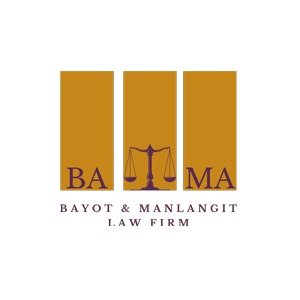Best Tax Increment Financing Lawyers in Cavite City
Share your needs with us, get contacted by law firms.
Free. Takes 2 min.
List of the best lawyers in Cavite City, Philippines
About Tax Increment Financing Law in Cavite City, Philippines
Tax Increment Financing (TIF) is a public financing method that is used as a subsidy for redevelopment, infrastructure, and other community-improvement projects. Though not as commonly utilized in the Philippines as in Western countries, regions like Cavite City are exploring its potential to encourage urban renewal and economic development. TIF involves capturing the future tax benefits of real estate improvements to pay for the present costs of those improvements, essentially reinvesting in the community's infrastructure.
Why You May Need a Lawyer
Legal assistance may be crucial in several scenarios involving Tax Increment Financing in Cavite City. Firstly, if you're a developer looking to invest in a TIF district, understanding the intricate legal requirements is vital. Secondly, property owners within a designated TIF area might need legal advice on how the financing will affect their property taxes and rights. Additionally, municipal officials and local government units may require legal expertise in drafting TIF agreements or resolving disputes with developers.
Local Laws Overview
In Cavite City, several local ordinances and national laws may impact the implementation of Tax Increment Financing. The Local Government Code provides the framework for local economic development and financing, which may include TIF as a mechanism. Additionally, the Public-Private Partnership (PPP) framework in the Philippines outlines guidelines for private sector investment in public infrastructure, of which TIF could be a part. It's essential to understand how these laws intersect to effectively implement TIF projects.
Frequently Asked Questions
What is Tax Increment Financing?
Tax Increment Financing is a financial tool used to support development projects by diverting future property tax revenue increases towards current infrastructure improvements.
How does TIF work in Cavite City?
TIF works by designating a TIF district where tax increments are captured and reinvested locally to fund development projects, aimed at boosting economic growth in the area.
Is TIF new to the Philippines?
While not commonly utilized compared to Western countries, TIF is gradually being explored in regions like Cavite City as a means to stimulate local development.
Do I need a lawyer to engage in TIF projects?
Yes, legal counsel is advised to navigate the complex regulations and agreements involved in TIF projects, ensuring compliance and protecting your interests.
What types of projects can TIF fund in Cavite City?
TIF can support various projects, including infrastructure improvement, urban redevelopment, environmental cleanup, and public amenities enhancement.
Who qualifies to propose a TIF district?
Typically, local government units or public-private partnerships can propose the creation of a TIF district, pending appropriate governmental approval.
What is the role of the local government in TIF?
The local government evaluates, approves, and oversees TIF projects, ensuring they align with public interests and economic development plans.
How does TIF affect existing property owners?
Property owners can experience changes in property taxes due to increased valuations from TIF-funded improvements but also benefit from enhanced infrastructure and services.
Can TIF projects face legal challenges?
Yes, TIF projects can face legal scrutiny regarding district boundaries, use of funds, and compliance with relevant laws, warranting thorough legal review and representation.
How is community input considered in TIF projects?
Community engagement is crucial in the TIF process, with public hearings and consultations often held to gather feedback and address concerns.
Additional Resources
Individuals seeking more information on Tax Increment Financing in Cavite City can start by contacting the local government unit's economic development office. Additionally, the Philippine Board of Investments and the Public-Private Partnership Center can provide insights into financing frameworks and partnership opportunities that may involve TIF.
Next Steps
If you need legal assistance with Tax Increment Financing, consider hiring a lawyer with experience in local government law and real estate development. Conduct thorough research or seek recommendations to find a reputable attorney and prepare any relevant documents or questions ahead of your consultation. Engaging with a knowledgeable attorney early in the process can clarify your position, streamline the submission of proposals, and ensure compliance with applicable laws.
Lawzana helps you find the best lawyers and law firms in Cavite City through a curated and pre-screened list of qualified legal professionals. Our platform offers rankings and detailed profiles of attorneys and law firms, allowing you to compare based on practice areas, including Tax Increment Financing, experience, and client feedback.
Each profile includes a description of the firm's areas of practice, client reviews, team members and partners, year of establishment, spoken languages, office locations, contact information, social media presence, and any published articles or resources. Most firms on our platform speak English and are experienced in both local and international legal matters.
Get a quote from top-rated law firms in Cavite City, Philippines — quickly, securely, and without unnecessary hassle.
Disclaimer:
The information provided on this page is for general informational purposes only and does not constitute legal advice. While we strive to ensure the accuracy and relevance of the content, legal information may change over time, and interpretations of the law can vary. You should always consult with a qualified legal professional for advice specific to your situation.
We disclaim all liability for actions taken or not taken based on the content of this page. If you believe any information is incorrect or outdated, please contact us, and we will review and update it where appropriate.










